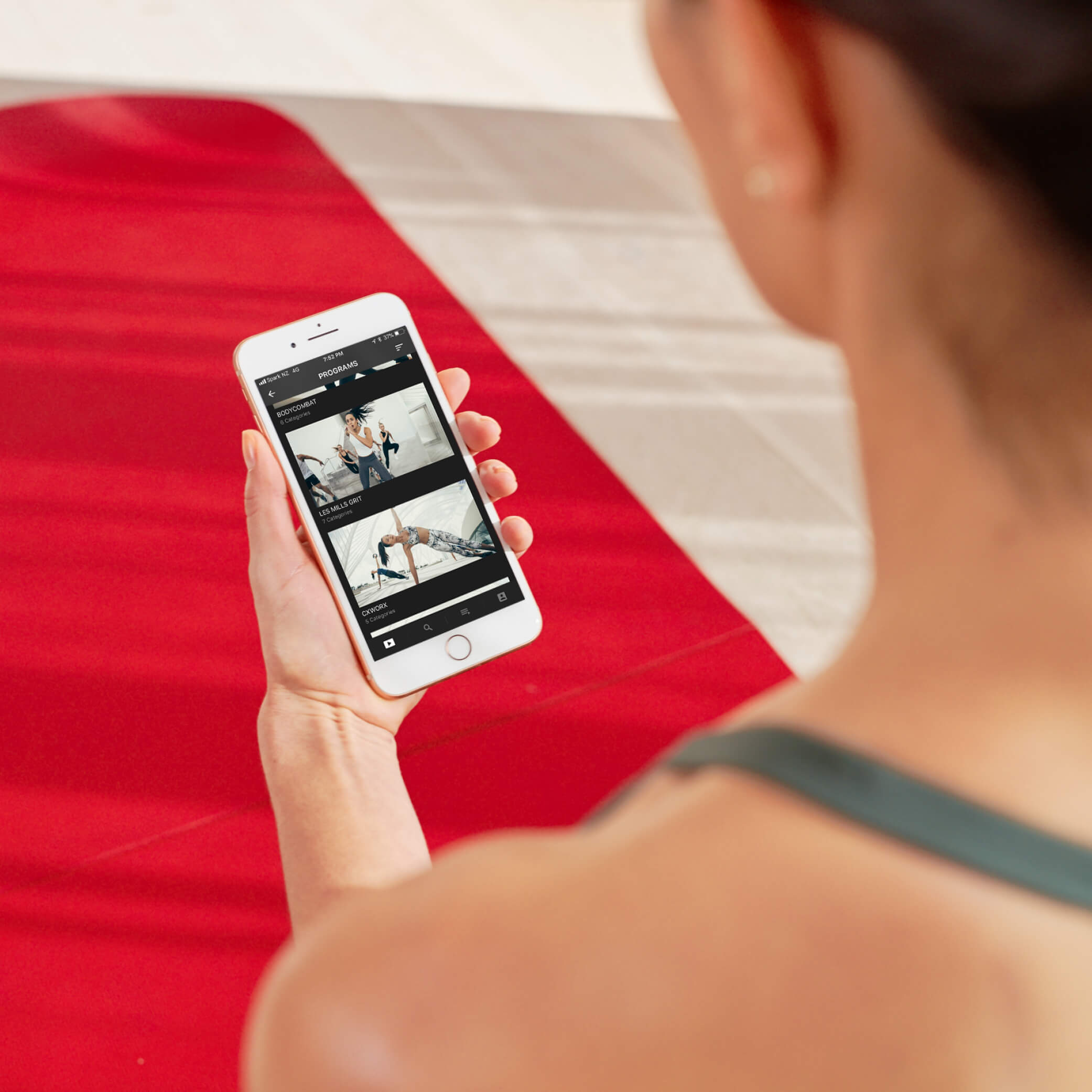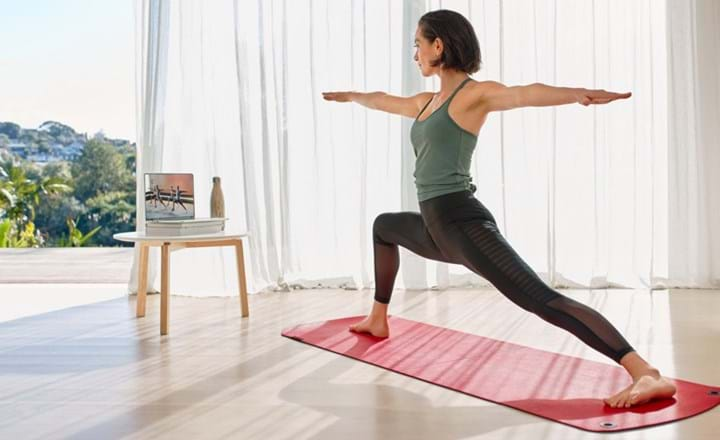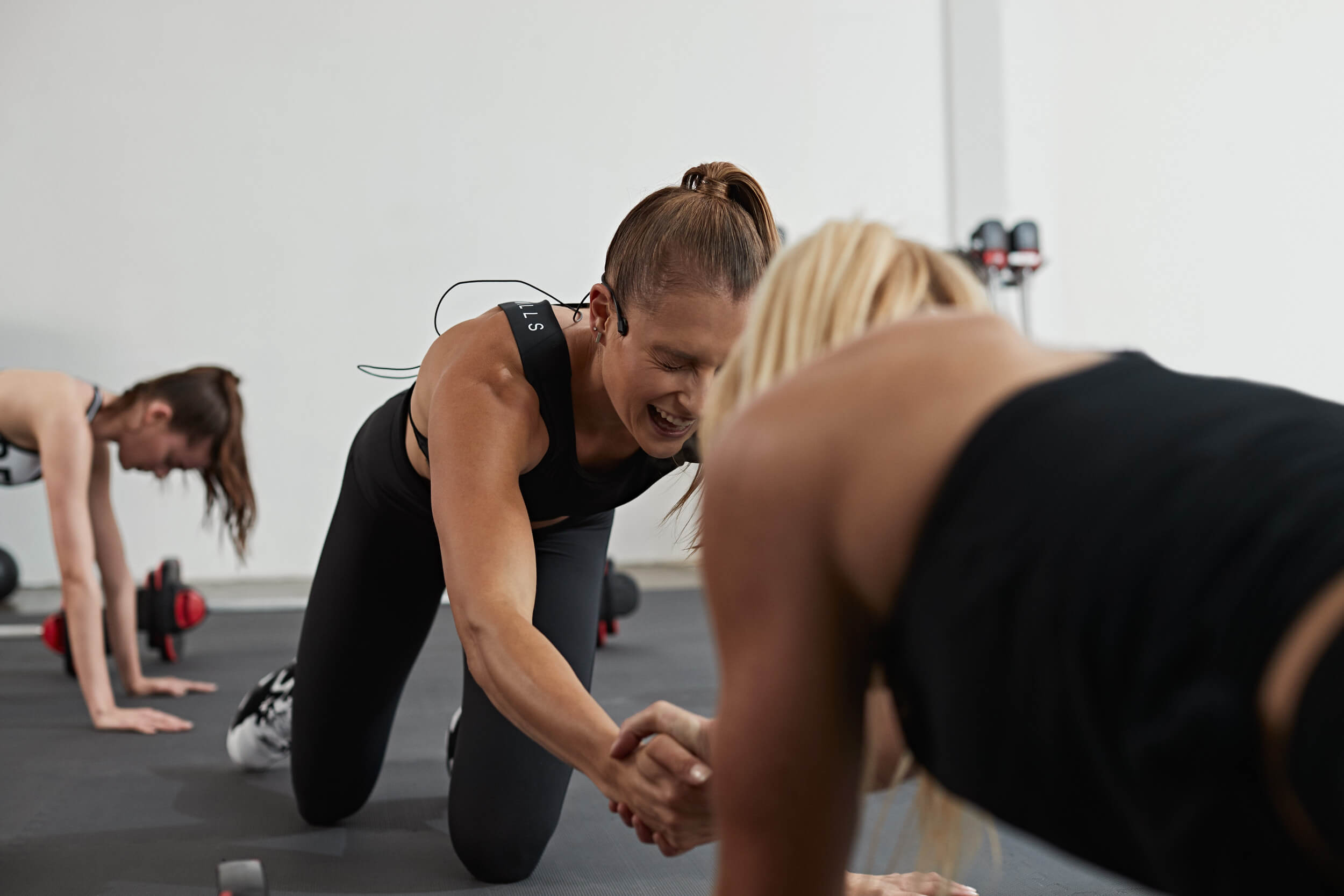
Apple is on the verge of a major fitness launch, Facebook is going after fitness live-streaming and Amazon has just revealed an entire ecosystem of connected fitness products. Meanwhile, Peloton – which threatens to replace gyms with its home workouts – has seen its shares soar 360 percent since March.
Make no mistake, Silicon Valley’s biggest players are sizing up the fitness market – and they’re coming for your members.
This isn’t great news for club operators at any time, least of all when the fitness industry faces its biggest ever crisis – battling the crippling effects of COVID-19. And that’s precisely why Big Tech is preparing to strike: COVID-19 has changed the game forever, making digital fitness a core expectation of every club member in the world in just three months.
Times have never been tougher for club operators, but it isn’t all doom and gloom. With every new challenge to the club model, comes fresh opportunity. Clubs may not have the financial might or brand power of major tech firms, but they have assets that Big Tech can’t yet match: highly-engaged communities centered around authentic, live experiences.
For those willing to be bold, the digital fitness boom can fast-track club growth and help operators thrive in the new age of fitness. Here’s how to fight back against Silicon Valley and give your club the edge.
‘Digital Darwinism’ takes hold
The growth of digital workouts isn’t a sudden shift in consumer behavior sparked by COVID-19, it’s actually the acceleration of a trend that’s been taking hold for some time.
The 2019 Global Consumer Fitness Survey showed that 85 percent of gym members also exercised at home – and that was before COVID-19. This came at a time when global club membership numbers had shown a decade of year-on-year growth, suggesting that smart use of digital fitness platforms was helping to grow the fitness market and reach new audiences, rather than cannibalize existing members.
“The speed at which fitness operators adopt and leverage technology will have a material impact on their future success,” noted the latest International Fitness Industry Trend Report from ClubIntel. “As fitness moves from a brick and mortar experience to a digital one, operators will need to pursue these platforms more assertively to remain relevant.”

The report examined the impact on clubs of ‘Digital Darwinism’ – the term coined to describe the current zeitgeist where technology and society are evolving faster than businesses can naturally adapt – warning that clubs which fail to keep pace will be at risk of extinction.
The evidence suggests clubs that can bridge the gap between the digital and physical world to offer members an integrated fitness experience will be best-placed to thrive in the future. What COVID-19 has shown so far is just how quickly clubs can adapt when they need to.
Time to transform
With Digital Darwinism now upon us, the phrase ‘Innovate or die’ has shifted from being a fitness conference catchphrase to the harsh reality of operating a club in 2020.
But as Winston Churchill famously said: "Never let a good crisis go to waste." With so much up for grabs, now is the perfect time to transform your member offering and future-proof your business. To innovate, rather than die. So where should clubs start?
“The reality for most clubs,” says Les Mills Global Markets CEO Keith Burnet, “is that it’s going to be very difficult to beat the world’s best boutique experience, or create a tech product to rival Apple or Google. But offering a connected fitness experience that combines the best of both worlds is now a viable goal to aim for.
“Much like supermarkets, consumers want a one-stop-shop for their fitness needs, so clubs should offer a compelling blended solution that combines the motivation and social connection of live fitness experiences in-club, with the convenience of digital workouts at-home. Offering a connected fitness solution that neither Apple nor the best boutiques can match puts your club in a strong position to keep current members – and attract new ones – by supporting them to work-out however they choose.”
So how can clubs get started on their digital transformation?
Learn from early adopters
Clubs that were quick to adapt to the challenges of lockdown made smart use of existing solutions available to them to quickly ramp up their digital offering to members.
According to a May 2020 ClubIntel report, three-quarters of the world’s clubs offered access to livestream group fitness classes or on-demand offerings, either through branded club apps or by teaming up with a partner. LES MILLS™ On Demand (LMOD) was the most popular third-party option, with 31 percent of clubs choosing the platform to keep their members active and engaged, along with Les Mills livestream options.

Many clubs took advantage of the 60-day free offer of access to Les Mills On Demand (LMOD) – which enabled members to continue the Les Mills group workouts they love doing in their facilities – and have since moved onto the LMOD Affiliate Program. This means clubs can support their members’ entire fitness journey by providing home workouts via LMOD, whilst receiving a share of the revenue for each sign-up. So they add a world-class digital component to their member offering, while also unlocking a handy extra revenue stream.
It’s a combination that members are keen to maintain even when their clubs are back to full capacity. Among new trialists of LMOD who took up the 60-day free offer through their club during lockdown, 82 percent would like to continue using the service via their club if they can receive a discounted rate (like that available through the LMOD Affiliate Program). Across all fitness markets, there’s been strong consumer demand for a hybrid of in-club and home workouts. Current club members account for 62 percent of LMOD users (as of May 2020) and 71 percent of these regularly attend live Les Mills classes as well.
82 percent of members would like to continue using LMOD via their club post-lockdown if they can receive a discounted rate
One club that’s harnessed the mix of livestream and on-demand to undergo a full digital transformation is Forsyth Country Club in the US, which is now reporting record group fitness numbers.
“Clearly fitness has changed enormously in the past few months and we’re committed to embracing change and resisting the temptation to revert to old habits once lockdown lifts,” says Forsyth Country Club Fitness Director Renate Van Staden.
“Modern members expect a connected fitness solution from their club and that’s what we as operators need to deliver. Live fitness remains the pinnacle for everyone and the best experience that we can offer, but it’s equally important to bridge the gap between live and online fitness, tapping into tools like livestream and Les Mills On Demand to provide our members with a blended fitness offering that meets their every need.”
Grow your membership – and revenue
Far from being simple stop-gaps to tide the industry over during lockdown, livestream and on-demand are becoming vital additions to clubs’ long-term digital offerings.
Research from fitness facilities developer Alliance Leisure found that 96 percent of consumers who tried a workout from a club during lockdown said they would use that facility when it reopened. Meanwhile, a new ClubIntel report into the post-COVID fitness landscape concludes that “operators seeking relevance to Gen Z and Millennials need to commit to providing virtual fitness content”, as these demographics were the biggest consumers of digital offerings during lockdown and say their ongoing provision will be the most important factor in them returning to their club post-COVID.

Another operator that’s taken rapid strides to enhance its member offering and unlock new revenue streams is Everyone Active. As lockdown struck in March, the 190-site UK operator combined LMOD with four other fitness apps to create a temporary digital solution for members. This pivot to digital paid off substantially, with over 10,000 members subscribing to the new £9.99 a month service, yielding vital additional revenue during lockdown and supporting longer-term member retention.
Buoyed by the success of its temporary solution, Everyone Active has committed to a long-term digital transformation to future-proof its member offering. This saw the operator launch its own permanent digital fitness platform – Everyone On Demand – in July, combining LMOD with training content from WithU, Flex by Fitness on Demand, and EXi to bring members over 2,500 workouts.
Everyone On Demand is being deployed to engage and retain current members – while also enticing new ones – by offering access to the platform for all new and existing Everyone Active facility members as part of their standard package. For those not yet ready to return to the gym, the operator is also offering Everyone On Demand digital memberships for £9.99 per month.
Standalone digital offerings – like the £9.99 Everyone On Demand package – can be a great way for clubs to win new fans online, build brand affinity, and then eventually convert them to becoming full members of the club. By taking the club experience into people’s homes, operators have the chance to reach huge swathes of the population who wouldn’t typically visit a club and help them start their fitness journey. There is clear appetite for such fitness progression among non-gym members using LMOD, with 53 percent stating they’re interested in trying live Les Mills classes in a club (research from May 2020).
Laddering up to live
Digital offers huge opportunities for clubs to reach beyond their traditional local catchment. Now, anyone with an internet connection is a potential target for digital memberships. But it’s the combination of this with live workout experiences that gives clubs the edge over digital-only fitness products.

COVID-19 has brought great progress in the range of options for people to stay active at home, but motivation remains the key to regular exercise and this is the very reason clubs exist in the first place. Gym members are on average 14 times more active than non-members because live workouts in a buzzing club provide the ultimate inspirational fitness experience and the numbers bear this out.
Published in the Journal of Sport, Exercise and Performance Psychology (August 2019), the Les Mills Groupness Study found that gym attendees experience increased levels of individual enjoyment, exertion and satisfaction as a result of group exercise. It identified the powerful role ‘the group effect’ plays in positively influencing a club member’s overall workout experience – and their intention to return.
“What our findings show is that we really are social animals when it comes to working out,” says Les Mills Head of Research Bryce Hastings. “When you maximize the group effect, this leads to a high level of what we’ve termed ‘groupness’. And the higher the level of groupness, the more we see increases in a person’s enjoyment, satisfaction and exertion.”
In other words, the motivation and connection of a live class makes people work harder, have more fun, and want to come back to their club more frequently. Great Instructors play a crucial role in maximizing the group effect, thanks to their ability to connect with the individuals in the group and create a sense of ‘we’ in a class environment.
After months of isolation for much of the world’s population, the challenge for clubs is to be the bridge between the digital and the physical fitness space. Fusing the best of digital (innovation, accessibility, and scalability) with the motivation of live fitness experiences – tapping into our primal roots as social animals hard-wired to work(out) in packs, who still crave connection, now more than ever.
This is the key to stealing a march on Silicon Valley and setting up your club for long-term success. With health now the world’s number one priority and multiple studies indicating that people intend to invest more in their fitness, clubs that embrace digital transformation will enjoy significant opportunities for growth.
READY TO DIGITALLY TRANSFORM YOUR CLUB?
Check out our RE-SET HUB, packed with tools, insights and resources to help your club stay ahead.
GET FIT FOR THE FUTURE